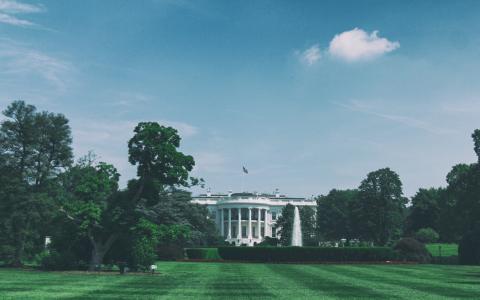
In a pre-recorded interview with The Atlantic’s Future Economy Summit released Tuesday morning, Treasury Secretary Janet Yellen indicated that if President Biden’s multi trillion-dollar spending plans are enacted by Congress, “it may be that interest rates will have to rise” to prevent the economy from overheating.
It was the most overt acknowledgement to date by a Biden administration or Federal Reserve official that inflationary pressures exacerbated by unprecedented federal stimulus spending and a coming consumer boom might actually harm the economy. Markets dropped briefly following Yellen’s comments.
Edward Moya, a senior market analyst at OANDA, a foreign exchange broker, described the remark as a “big oops”—until now, the White House and Federal Reserve have been consistent about careful messaging downplaying the risk posed by inflation and the potential of tightening policy. By Tuesday afternoon, Yellen was walking back her comments. “I don’t think there’s going to be an inflationary problem,” she said at a Wall Street Journal event, adding that the Fed could be “counted on” to address problematic inflation should it arise.
White House Press Secretary Jen Psaki also did damage control, telling reporters in a Tuesday press briefing that the administration takes “inflationary risk incredibly seriously, and our economic experts have conveyed that they think this would be temporary and that the benefits [of Biden’s ambitious spending plans] far outweigh the concern.”
Jared Bernstein, a member of the Council of Economic Advisers, and Ernie Tedeschi, a senior economist on the council, have acknowledged that a spike in prices is likely in the short term as the economy recovers but are adamant that it will be transitory and manageable. So has Federal Reserve Chair Jerome Powell. “During this time of reopening, we are likely to see some upward pressure on prices,” he told reporters last month. “But those pressures are likely to be temporary.”
But not everyone is buying into the message. According to analysts at Bank of America, markets are pricing in the “risks of a significant overshoot” of the Fed’s 2% average inflation target for the first time in years. (Powell has maintained that a transitory rise in inflation over 2% this year would not be enough for the Fed to start hiking rates—inflation would need to run above 2% “for some time.”)
Ten-year breakeven inflation (measured by the difference between nominal and real yields on Treasury bonds) has reached its highest level since 2013—meaning that investors are expecting an uptick in inflation even though that uptick hasn’t yet materialized. “Fiscal and monetary policymakers are attempting to heat up the economy at record pace: our results suggest that the markets see a clear risk that this will result in a significant inflation overshoot,” Bank of America’s analysts wrote. So while investors may not be sounding alarm bells yet, they are preparing for risk despite the dovish messages coming from Washington.
In a note last week, Ally Invest president Lule Demmissie said that the mindset for investors “has switched from ‘what could go right?’ to ‘what could go wrong?’” Demmissie added that “investors are getting increasingly anxious about what’s coming around the corner, whether it be a policy change, or an inflation scare.”
Evidence of higher inflation is also trickling down to consumers in the form of higher prices on consumer goods and commodities, though some of the price changes over the past year can also be attributed to pandemic-related disruptions in supply and demand. Billionaire investor Warren Buffett said he is seeing “very substantial inflation” in the form of higher prices during Berkshire Hathaway’s annual meeting last weekend.
Wall Street Journal columnist James Mackintosh wrote this week that investors are “woefully unprepared” for a higher-inflation environment, which he expects will be ushered in by five factors, including a new era of big government spending, the Fed’s softer inflation policy (a goal of an average of 2% rather than a strict 2% cap) and stronger labor unions.
“Risks are really mounting in the economy,” says Gene Goldman, chief investment officer at Cetera Investment Management, pointing to peaking earnings and peaking economic growth, the Chinese government easing off fiscal stimulus and increasing market volatility as well as inflationary pressures. While Goldman agrees that the nature of the inflation risk is transient, he says it’s also possible that the “Fed is a little bit behind the game right now, because everything out there—whether it's businesses whether it's consumers whether it's the market—is saying inflation is likely going to be overshot.”
This article originally appeared on Forbes.



